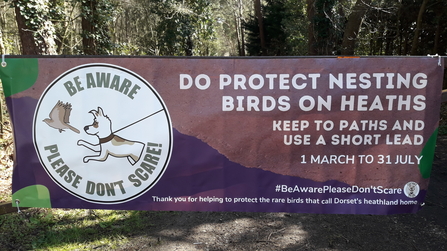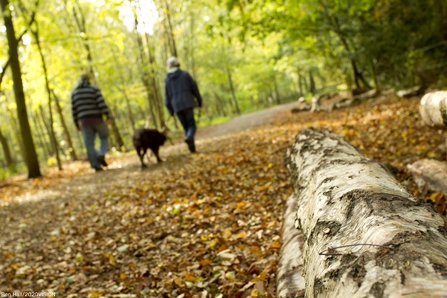Birds who nest on the ground? Yes, it's true! That's why from 1 March until 31 July, Dorset Wildlife Trust is urging dog owners to keep their pets on short leads and stick to the paths to protect those nesting birds, wildlife emerging from hibernation to breed as well as grazing livestock.
Pet owners urged to help keep wildlife and livestock safe this spring

Lesley Haskins
Dorset's heathland species are especially vulnerable to disturbance from our four legged friends. Heathland birds such as nightjar, woodlark and Dartford warbler have adapted to landscapes with fewer trees and as a result they nest and lay their precious eggs on the ground, often close to paths. Any dog having a natural rootle around in the heather may well scare them off their nests which makes the eggs or chicks very vulnerable to failure or predation.
So to protect these very special birds on Dorset's heaths, it is critical to keep to main paths and keep your dogs on a lead in the summer. Heathland managers usually put notices up in the spring to educate visitors, as well as eye-catching banners to remind us how very important it is to protect our heathland birds.

Ben Hall/2020VISION
"Over the past 150 years, 85% of Britain’s heathlands have been lost and this rare habitat is vital for many specialised species of reptiles, insects and birds. Dogs off leads are one of the biggest causes of wildlife disturbance and ground nesting birds such as nightjars are particularly at risk. 66% of ground nesting birds are in decline in the UK and wildlife is less likely to breed and feed where dogs are encountered. Dogs can also trample nests and scare adults away from young, so we ask for dogs on leads and responsible behaviour when out enjoying Dorset Wildlife Trust's nature reserves."Dorset Wildlife Trust
The law states you must keep your dog on a lead no longer than two metres between 1 March and 31 July when on any open access land to protect ground-nesting birds.




